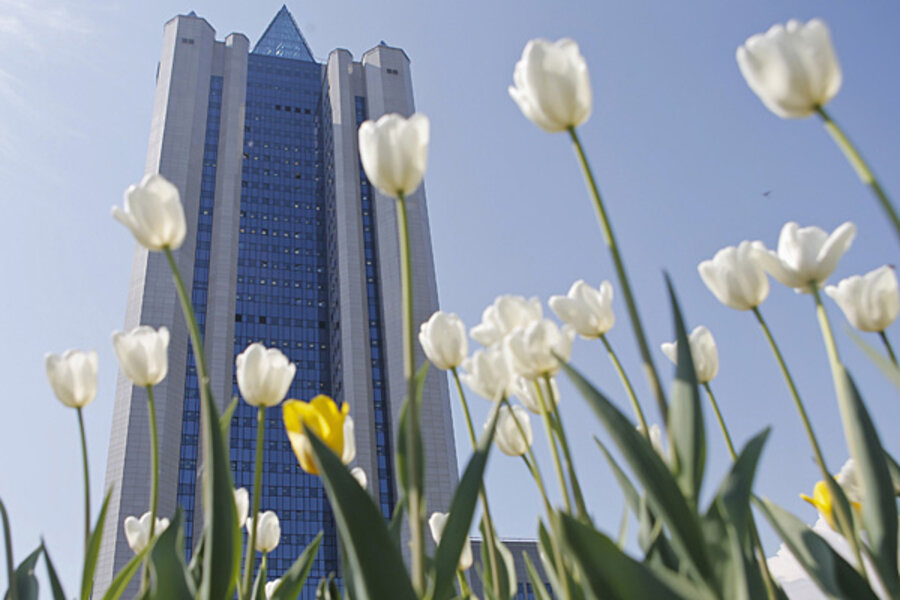Gazprom says risk of gas transport through Ukraine is 'insignificant'
Loading...
Russian gas monopoly Gazprom says that despite the ongoing turmoil in Ukraine, the risk to disruption of European energy supplies is "insignificant" because demand is expected to be low during the spring and summer months.
In its quarterly report, the company said, "At the moment due to the worsening political situation in Ukraine it is necessary to note an increase in the risk associated with the transit of gas through the territory of that country. In the spring/summer season, the risk can be assessed as insignificant due to the seasonal decline in natural gas consumption."
Ukraine transports most of the gas Russia sells to Europe through its Soviet-era transit network. The country was plunged into turmoil after the pro-Russian government in Kiev was toppled earlier this year, and now teeters on the brink of a civil war between separatists in the East and the Ukrainian military.
Earlier this week, Gazprom CEO Alexei Miller warned that Ukraine would receive no more gas starting of June unless it begins to pay for deliveries in advance.
Ukraine, by Gazprom's accounting, has amassed several billion dollars worth of debt. The Ukrainian government said it was willing to cover that debt as soon as Gazprom lowers what it charges for natural gas. The $485.50 per 1,000 cubic meter that Gazprom charges is the highest for any of its European consumers.
In 2009, Gazprom cut gas supplies to Ukraine because of similar disputes, leaving downstream consumers in Europe in the cold for weeks. The deal that ended the impasse saddled Ukraine with a huge debt burden.
Rival gas supplier RWE, the German utility company, said in a financial statement it had a poor first quarter because of an unusually mild winter in Europe. RWE supplies tens of millions of European customers with natural gas, and lower than usual seasonal demand meant gas sales were down 19 percent compared with last year.
The International Energy Agency said in March that gas flows from Russia to Europe in 2013 were 13 percent higher than in 2010. The amount of natural gas sent through Ukraine, however, declined 12 percent during the same period.
Gazprom, the largest natural gas producer in the world, admitted last month that the escalating crisis in Ukraine could negatively affect the Russian economy. The International Monetary Fund echoed that sentiment, warning Russia's energy-based economic growth model "has reached its limits."







